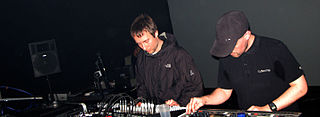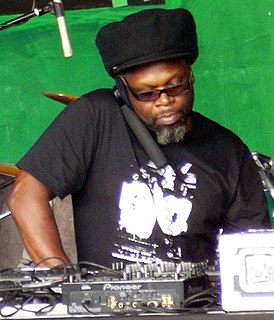A Quote by Sean Booth
Working in the digital domain, you're using approximations of things; the actual sound wave never enters the equation. You deal with sections of it, and you're able to do so much more by just reducing the information to a finite amount.
Related Quotes
I think that because of YouTube, because of MySpace, because of the digital domain that we have on the Internet, the younger generation is much more open to information. I think it's so much easier for them to gain information and trade information, and they have become more aware. In some cases, more aware than their own parents and adults, as to what's going on in the world. I find that really intriguing and interesting, and I think there is a brewing of a whole new generation of activists coming.
Most people think visual information is more important than aural information - like, what's this big deal about sound? And why should I bother to listen, rather than look? And here are the facts: there are blind species, in the backs of the caves, the bottoms of the oceans. It's not essential on planet Earth to be able to see, to be a species. But there are no deaf animal species. You have to be able to hear, or you won't get the information you need in order to survive.
This is going to sound cheesy, but with acting there are so many tools. When you're on camera, you're using all of it. You're using the voice, you're using your body, you're using wardrobe, all of it, but it's funny, once you take all of those things away, you realize how much you rely on the physicality.
There is so much more information about the scientific world than there was a generation ago that we have all increased our opportunities for ignorance. There are more things not to know. ... The machinery that we deal with is so much more complex that it is possible to become dysfunctional at a much higher level of performance.
We were being put somewhere interesting from being involved with analog, to working with digital. Those two worlds just collided and it felt great! That was probably the key inspiration in terms of me going on to not just making dub plates for my sound, but doing the unobvious and "selling out" to the masses. I subsequently got a record deal because of that.
Modern statisticians are familiar with the notion that any finite body of data contains only a limited amount of information on any point under examination; that this limit is set by the nature of the data themselves, and cannot be increased by any amount of ingenuity expended in their statistical examination: that the statistician's task, in fact, is limited to the extraction of the whole of the available information on any particular issue.
Using film was so much easier than the digital technology of today. But digital is still at the beginning of what it can be and they'll be fixing all those problems. It's just too complicated - negatives, tinting, flashing - it's a whole new system that takes a lot of time. Of course, it's not as physical. Even the editing. You used to feed a piece of celluloid into an editor. [Digital] is not expensive and that is an advantage, but I must say that I don't love it.




































